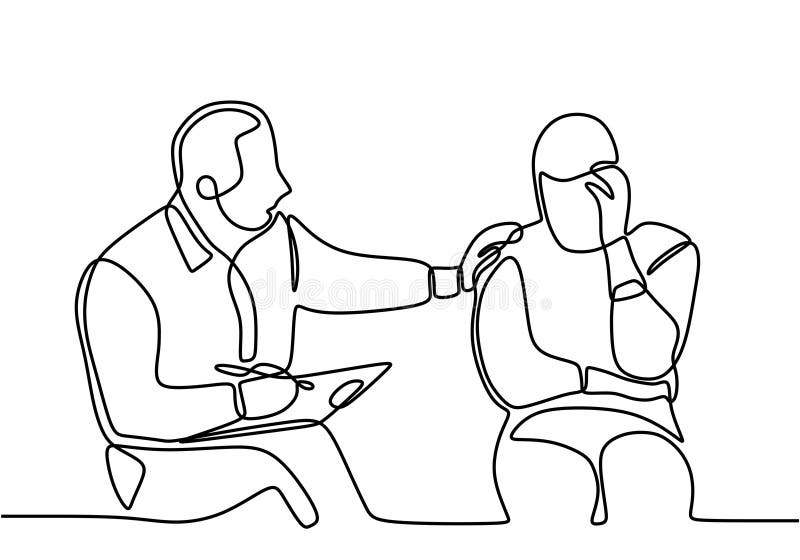Discover the Best Psychologist in Delhi for Effective Mental Wellness Support
Discover the Best Psychologist in Delhi for Effective Mental Wellness Support
Blog Article
Psych Therapy: A Comprehensive Overview to End Results and strategies

Cognitive-Behavioral Treatment
Cognitive-Behavioral Therapy (CBT) is a widely used psychotherapeutic approach that concentrates on identifying and modifying useless reasoning and behavior patterns. Created in the 1960s by Aaron T. Beck, CBT integrates behavioral and cognitive concepts to deal with different psychological health issues, including anxiety, anxiety, and stress-related disorders.
Techniques such as cognitive restructuring, exposure therapy, and skill-building exercises are frequently employed. Cognitive restructuring includes difficult and altering negative thought patterns, while direct exposure treatment intends to minimize concern and stress and anxiety via steady direct exposure to been afraid situations or items.
Evidence-based research sustains the efficacy of CBT for a vast array of mental problems - Best Psychologist in Delhi. Its emphasis on ability purchase and self-help techniques equips customers to continue progress separately after treatment wraps up. The flexibility and efficiency of CBT have made it a foundation in contemporary psychotherapeutic method
Psychodynamic Approaches
Rooted in the early theories of Sigmund Freud, psychodynamic techniques focus on discovering the unconscious mind and its influence on behavior and feelings. These approaches aim to reveal covert thoughts and feelings that may be driving maladaptive actions and emotional distress. Central to this approach is the idea of internal conflict, usually stemming from unsolved past experiences, specifically those from youth.
Therapists using psychodynamic strategies utilize a number of vital approaches, including free organization, where clients are urged to speak freely to expose unconscious material, and dream analysis, which translates the unrealized web content of dreams. Additionally, the exploration of transference and countertransference characteristics within the healing connection is critical. These communications can provide understandings into the person's internal world and relational patterns.
Psychodynamic therapy is generally longer-term contrasted to other modalities, providing a deep and extensive understanding of the individual's psyche. Research study indicates that it can be specifically effective for intricate mental wellness concerns, such as individuality problems and chronic anxiety. By promoting self-awareness and emotional understanding, psychodynamic treatment looks for to bring subconscious product to awareness, making it possible for individuals to attain enduring and significant modification in their lives.
Humanistic Methods
Building on the foundations laid by psychodynamic techniques, humanistic techniques supply a distinctive viewpoint concentrated on individual possible and self-actualization. Coming from the mid-20th century, these strategies focus on the fundamental goodness and development possibility of people, stressing an alternative view of human experience. Secret figures such as Carl Rogers and Abraham Maslow have actually considerably influenced this therapeutic technique, which incorporates methods like client-centered treatment and Gestalt therapy.
Client-centered therapy, created by Rogers, plays a pivotal role in humanistic strategies. It depends on the therapist supplying an environment of genuine favorable regard, empathy, and harmony. This fosters a secure room for customers to discover their feelings and experiences without judgment, promoting self-discovery and personal growth. The therapist's function is more of a facilitator than an authority, urging clients to harness their inner resources for healing.
Gestalt therapy, another important humanistic strategy, highlights existing minute awareness and the integration of mind and body. By concentrating on the "present moment," customers gain greater insight into their present emotions and behaviors. Strategies such as role-playing and assisted visualization are commonly employed to help customers gain a much deeper understanding of themselves, eventually causing improved self-awareness and gratification.
Integrative Treatments
Integrative therapies represent a synthesis of various healing techniques tailored to meet the one-of-a-kind requirements of each client. This technique acknowledges the intricacy of human psychology and the multifaceted nature of psychological wellness problems. By integrating elements from different schools of psychiatric therapy-- such as cognitive-behavioral therapy (CBT), psychodynamic therapy, and humanistic approaches-- integrative therapies supply a more flexible and holistic treatment paradigm.
Experts of integrative treatment analyze each client's certain requirements, signs, and individual history to design a personalized treatment plan. This personalized approach improves the possibility for restorative success by attending to the origin creates of emotional distress and advertising overall well-being. Methods might consist of mindfulness workouts, cognitive restructuring, and emotional processing, each chosen to target various facets of the customer's concerns.
In addition, integrative therapies highlight the restorative relationship, watching the client-therapist bond as an important part of efficient therapy. This partnership promotes a supportive environment where customers really feel risk-free to check out and resolve their problems. The adaptability of integrative therapies makes them ideal for a broad range of problems, consisting of anxiety, depression, trauma, and interpersonal troubles, thereby raising their applicability and performance in diverse clinical setups.

Determining Therapy Outcomes
Evaluating the efficiency of psychotherapy is critical for both clinicians and customers to make sure that the therapy is yielding the wanted results. To accomplish this, numerous approaches and tools are used to measure therapy outcomes methodically. Standard evaluation tools, such as the Beck Anxiety Supply (BDI) and the Generalized Anxiety Disorder 7 (GAD-7), give measurable data on symptom you could try here severity and changes gradually.
Along with standardized devices, qualitative techniques like customer self-reports and medical meetings offer beneficial understandings into the personal experiences and viewed progress of clients. Routinely arranged examinations, typically at the beginning, omphalos, and end of therapy, help in tracking the trajectory of enhancement or recognizing areas requiring change.
Result dimension is not restricted to sign reduction; it additionally encompasses useful renovations in day-to-day live, such as far better interpersonal connections, increased work productivity, and improved total health. Modern developments in electronic health have presented mobile applications and on the internet platforms that facilitate real-time surveillance and feedback, even more refining the assessment procedure.
Ultimately, a comprehensive strategy to determining therapy outcomes ensures that therapeutic interventions work, efficient, and tailored to satisfy the private requirements of customers, consequently my blog optimizing the total restorative experience.
Conclusion
Psychotherapy provides a diverse array of methods targeted at dealing with specific mental health and wellness concerns and boosting overall health. Cognitive-Behavioral Therapy and psychodynamic approaches target inefficient thoughts and unconscious influences, respectively. Humanistic techniques concentrate on personal development and self-actualization, while integrative treatments incorporate numerous techniques for customized therapy plans. Evaluating therapy end results through qualitative methods and standard evaluations makes certain a thorough understanding of performance, inevitably guiding clients toward sustaining psychological wellness improvements.
From the organized strategy of Cognitive-Behavioral Therapy (CBT) to the deep expedition of the subconscious in psychodynamic treatment, each approach brings unique benefits. Its emphasis on skill purchase and self-help methods encourages customers to proceed progress independently after therapy wraps up (Best Psychologist in Delhi). Secret numbers such as Carl Rogers and Abraham Maslow have actually dramatically influenced this therapeutic method, which includes techniques like client-centered therapy and Gestalt therapy

Report this page